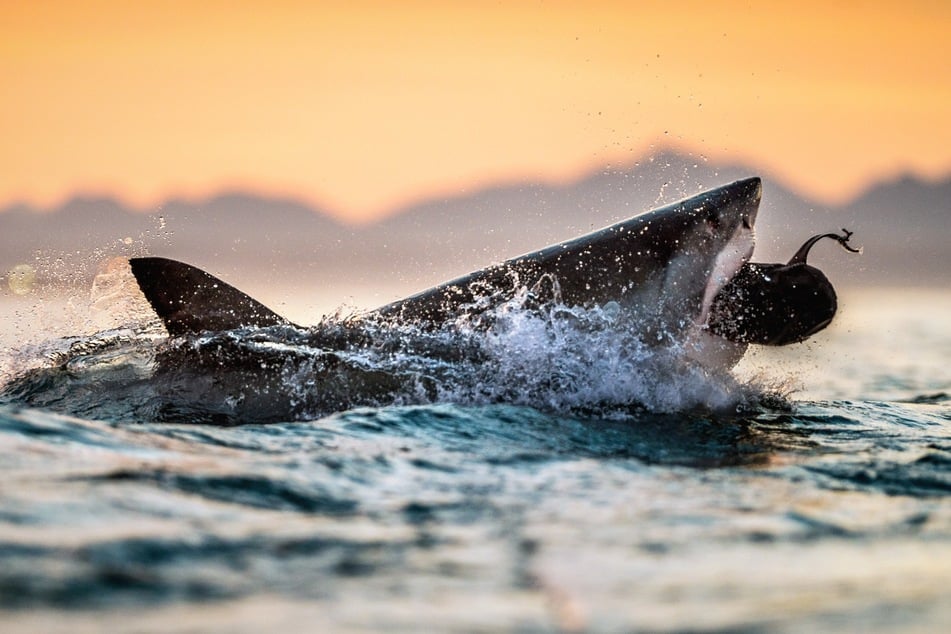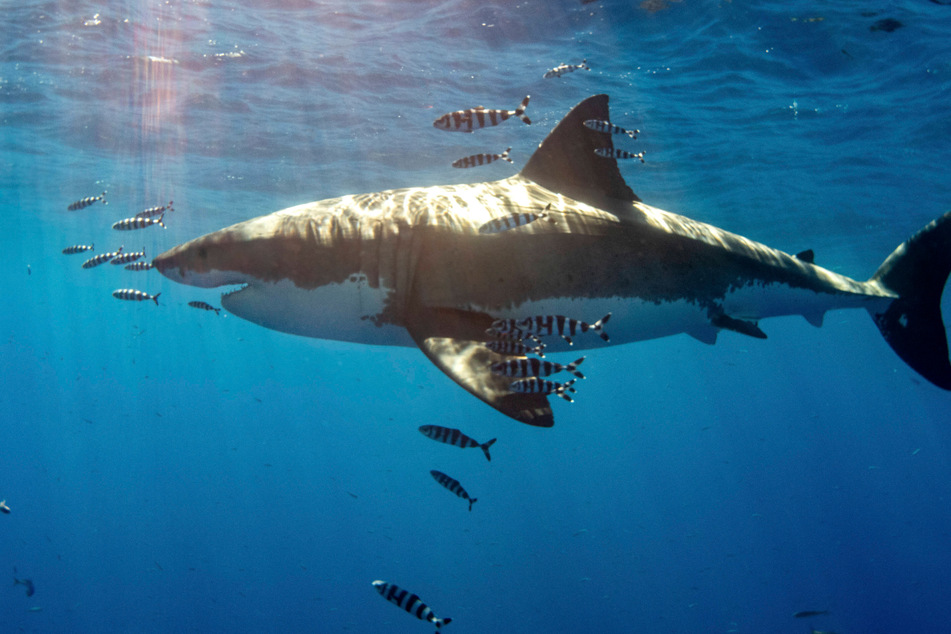More Great White Sharks are in California than previously thought, new study reveals
Los Angeles, California - If you swam off the coast of Santa Barbara or San Diego recently, chances are you had company. You just may not have noticed.

A new study from California State, Long Beach, found that juvenile white sharks are more common at some California beaches than previously believed.
While the news may conjure images of Steven Spielberg's movie Jaws, scientists say it shows just how rare shark bites are.
"It's not just about sharks, it's about people," Professor Christopher Lowe of Cal State and director of the school's Shark Lab said in a statement. "This study may change people's perception of the risk sharks pose to people that share the ocean with them."
During the two-year study, researchers used drones to study more than two dozen beaches along the California coastline. They found juvenile sharks between the ages of one and five congregating at two spots in southern Santa Barbara County and central San Diego County.
Per the new study released on Friday, sharks and people were swimming together 97% of the time.
Sharks swim closer to humans that previously believed

"The juvenile white sharks were often observed within 50 yards of where the waves break, putting surfers and stand-up paddle boarders in the closest proximity to sharks at the aggregation sites," Patrick Rex, a lab technician, said.
Rex told the Los Angeles Times that these results were surprising.
"What we found is that they're spending the majority of their time within 100 yards of where the waves are breaking." That's a lot closer than originally thought.
"People think, 'If I see a shark in the lineup (the area where waves begin breaking), I'm going to get bitten or I'm in danger,'" Rex said. "What we've seen is that that's not necessarily the case."
No shark bites were reported at any of the beaches observed during the two-year survey. There have been 209 documented shark incidents in California, between 1950 and November 2022, per the Department of Fish and Wildlife.
Exactly why sharks don't snack on humans is still a mystery, Rex said. The researchers think that sharks have started to identify humans as "not food."
"But that's such a hard conclusion to make because we still don't really know why sharks bite people," Rex said. Still, humans don't appear to be on the menu.
"What we've been telling people for the past 20 years is that the sharks will be here for the summertime, and then, when our water gets too cold, they migrate down to Mexico," Rex said. But the study found some sharks never left. That may be due to climate change, but researchers say they can't say that for certain just yet.
Cover photo: 123rf/ surz

